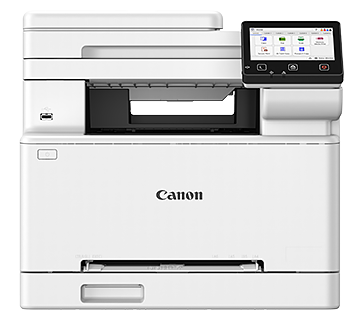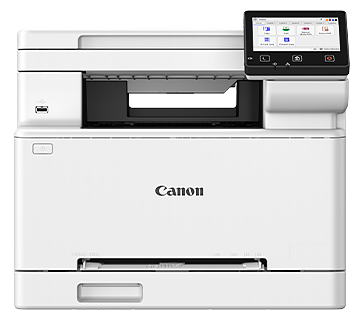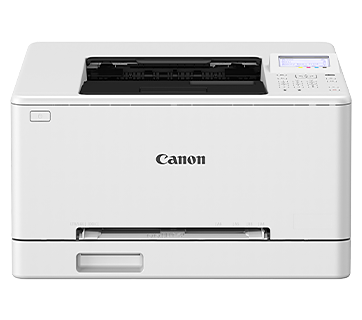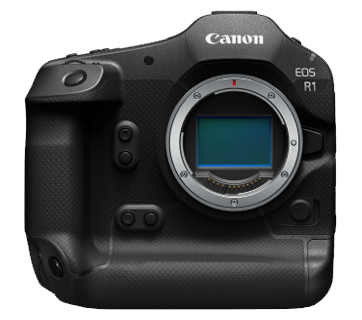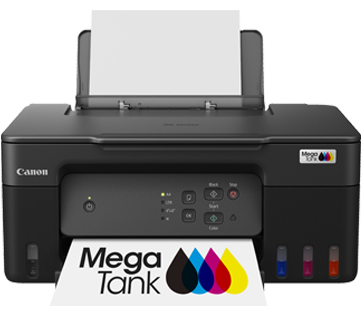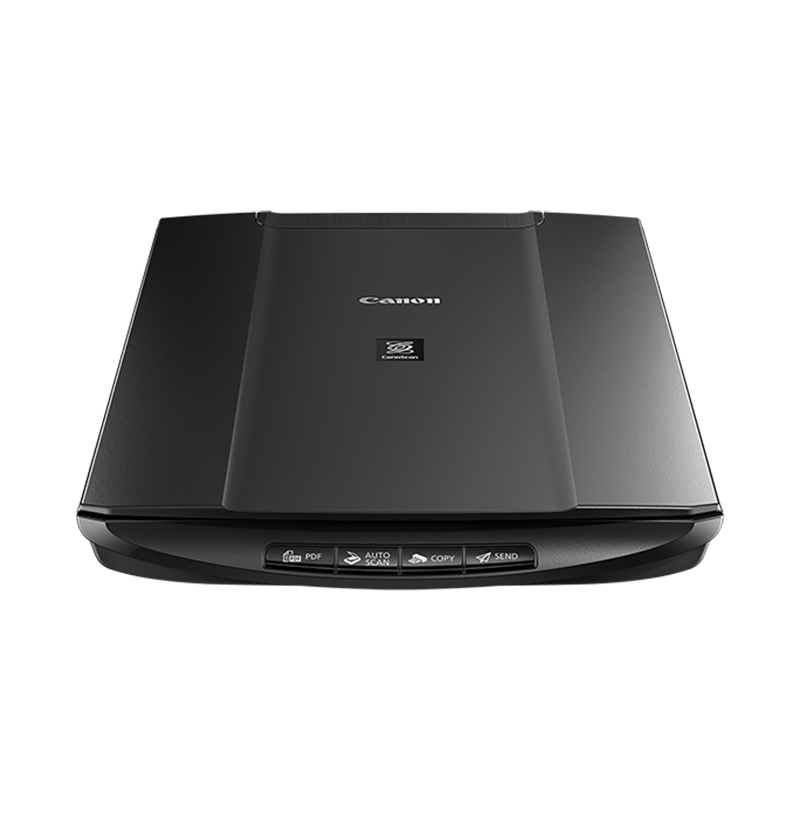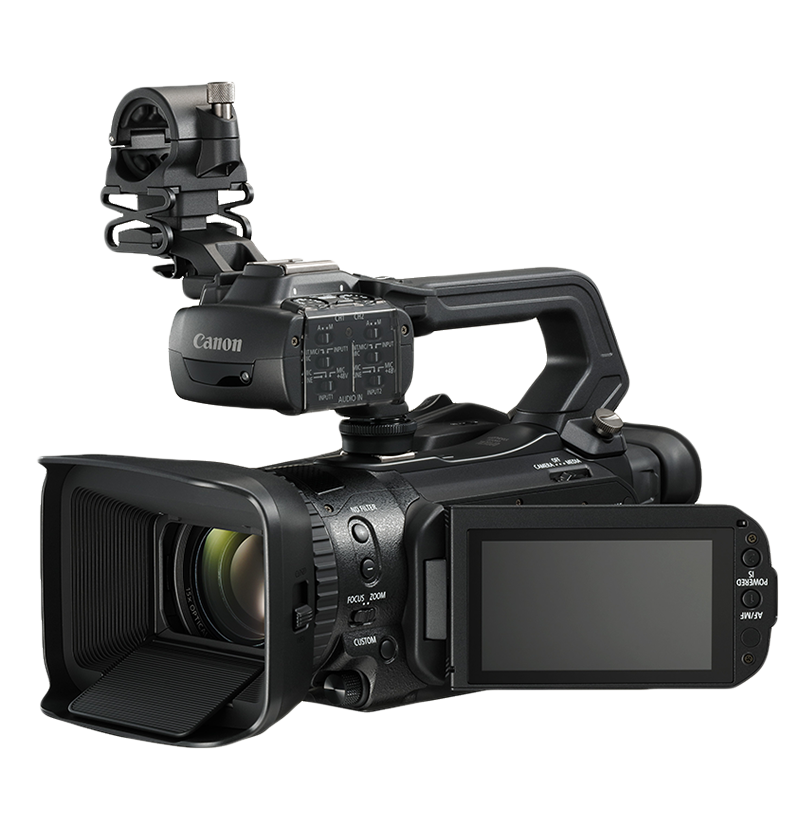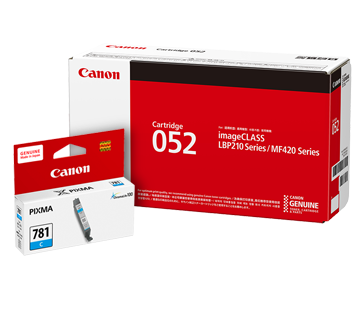How do I use EOS Utility to download still images or movies from the EOS 7D to a computer
Solution
This section describes how to download images from your camera to the computer using EOS Utility.
Same procedures can be used to download movies as well as still images. However, downloading movies requires a much longer time due to their large data size.
Windows Vista is used as an example, but the procedures are mostly the same if you use Windows XP,or Mac OS X.
CAUTION
- Install all software from the Solution Disk supplied with the camera before performing the following procedures.
- When downloading images to the computer, please log on to the computer as an administrator.
- EOS Utility is exclusively for Windows Vista, Windows XP, and Mac OS X.
1. Connect the camera to the computer with the USB cable supplied with the camera.
Set the camera's Auto Power Off settings to [Off] before making the connection.
Please see the related information for how to connect a camera to a computer.
2. Set the camera's power switch to < ON >.
3. EOS Utility starts automatically.
If EOS Utility does not start automatically, click the [Start] button, then select [All Programs] , [Canon Utilities] , [EOS Utility] and then [EOS Utility].
NOTE
If you use Mac OS X, click the [EOS Utility] icon registered in the Dock.
If a screen for selecting the program (application) appears, select [Downloads images EOS camera]. (If you use Windows XP, select [Canon EOS Utility] and then click [OK].)
4. When the following window appears, start the operation for downloading images.
To download all images saved in the memory card, click [Starts to download images] in the EOS Utility window.
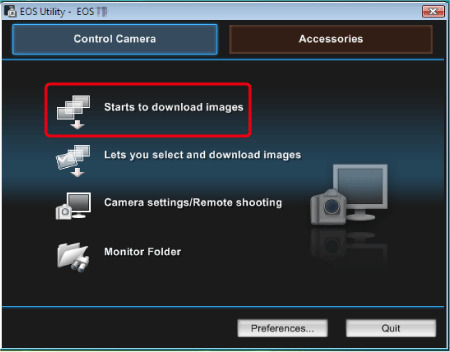
By default, the downloaded images are sorted into folders by their shooting date, and are saved in the [Pictures] folder on the computer. If you wish to change the destination for the downloaded images, click [Preferences] and specify the settings in the dialog box.
If you click [Lets you select and download images], the images saved in the memory card will be displayed in the EOS Utility window so that you can select the images to be downloaded. For the details, please see the "Downloading selected images" section below.
5. The images are downloaded to the computer.
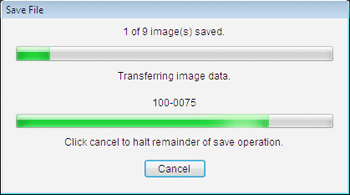
6. When all the images have been downloaded, Digital Photo Professional starts and the downloaded images are displayed. If you wish to edit images using Digital Photo Professional or ZoomBrowser EX/ImageBrowser, refer to the Software Instruction Manual supplied with your camera.
With EOS Utility, you can select the images you want from the images shot and download them to your computer.
If you wish to download only the images you want, follow the procedures below after performing the procedures described above in steps 1 to 3.
4. When the following window appears, click [Lets you select and download images].
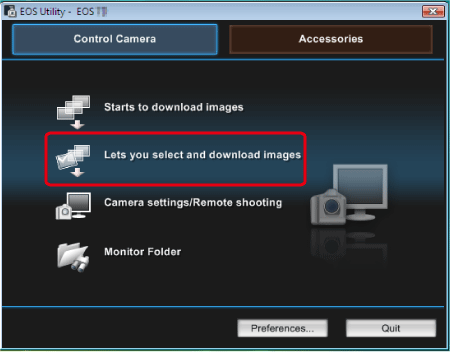
5. A viewer window appears, and images in the memory card will be displayed.
5-1. From the images displayed, check (  ) the images that you want to download. (Four images are selected here.)
) the images that you want to download. (Four images are selected here.)
 ) the images that you want to download. (Four images are selected here.)
) the images that you want to download. (Four images are selected here.) The images with the [  ] icon in the upper-left corner are movie files.
] icon in the upper-left corner are movie files.
 ] icon in the upper-left corner are movie files.
] icon in the upper-left corner are movie files.5-2. After selecting all the images you want to download, click [Download].
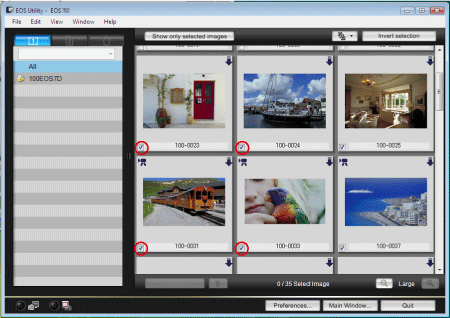
6. The [Download image] dialog box appears, so specify the destination where you want to save the images.
By default, the downloaded images are sorted into folders by their shooting date, and are saved in the [Pictures] folder on the computer. To change the destination, click [Destination Folder] and make the settings in the dialog box displayed.
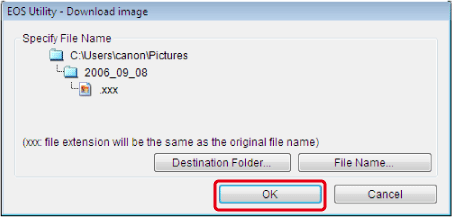
7. If you click [OK] in the image above, it starts downloading the images to your computer.
When all the selected images are downloaded, Digital Photo Professional starts automatically and the images that have been downloaded will be displayed.
This completes the process of downloading images.

